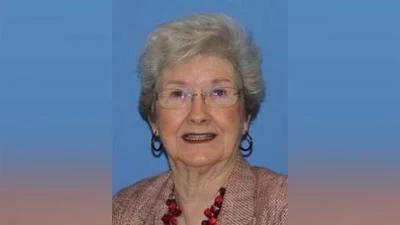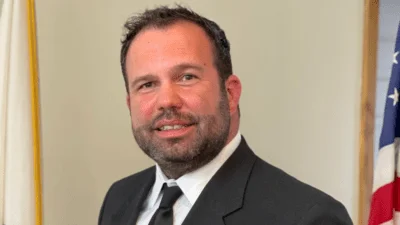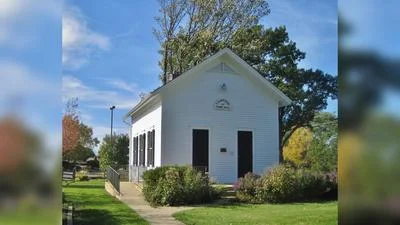Laurie Parman is seeking a rematch in House District 66. | Facebook / Elect Laurie Parman for Illinois State Representative
Laurie Parman is seeking a rematch in House District 66. | Facebook / Elect Laurie Parman for Illinois State Representative
Laurie Parman, a retired public school educator with more than three decades of experience and a doctorate in educational leadership, has announced her second campaign for the Illinois House of Representatives in District 66.
Parman, who received 46.7% of the vote in her 2024 challenge against incumbent state Rep. Suzanne Ness (D-Carpentersville) said she is preparing for a rematch in 2026.
“I was running against Suzanne Ness,” Parman told the Kane County Reporter. “She never knocked on a single door.”
Reflecting on her previous campaign experience, Parman acknowledged the challenges she faces in this election cycle.
“I kind of snuck up on them,” Parman said. “I will not have the benefit of that this time. I think they'll see me coming. They'll know that I'm a hard worker. They know that the public is pretty supportive of me—obviously the Republican base, but also people who find themselves in the middle too. So I got a lot of support from people.”
The 66th House District includes parts of Elgin, Carpentersville, Algonquin, Lake in the Hills and Crystal Lake. Parman spent 26 of her 30 teaching years in Community Unit School District 300.
During her last campaign, she focused on direct engagement with voters.
“What I did last time was I went methodically through each town and whoever would talk to me, I talked to,” she said. “And if that meant I talked to them for a half an hour, that's what I did. Because what I wanted to know was, in Illinois, what is the most significant issue for you? And almost hands down, they said the exact same answer. And that was the border.”
She said one of the reasons she was given was increased public safety concerns.
“One of the towns said crime, ‘It's starting to creep into our neighborhood,’” Parman said.
Parman also described hearing concerns from parents and teachers in Elgin and beyond about the pressures on local schools due to an influx of non-English-speaking migrant students.
“The children are flooding our schools and they're running around in the classrooms; there's not enough bilingual people to teach them, and our kids are suffering,” she said.
Addressing the concerns about border security, Parman emphasized the origins and status of the individuals involved.
“They're from other countries, they're illegal immigrants,” Parman said.
Parman voiced frustration with Gov. J.B. Pritzker’s $638 million allocation supporting illegal immigrants in Chicago, including shelter and job programs, in addition to billions spent on healthcare for illegal immigrants at the state level.
“I mean, everyone should be very mad at the expenditure that this state is willing to go to protect the illegal aliens, and to supply their needs at our expense,” she said. “And the senior citizens are saying to me, ‘Is my Social Security going to be there?’ If I was talking to a senior citizen, that was the first thing they said.”
Reflecting on the mood across the communities she visits, Parman said frustration with the state’s direction is widespread.
“A lot of people are not happy right now,” she said. Parman said the concerns she hears most often from residents—especially seniors—reflect deep anxiety about the state’s priorities and long-term stability given such expenditures.
“People are understandably and justifiably worried about the things that they hold dear,” she said.
Between July 2023 and June 2024, Illinois lost 56,235 residents to other states — roughly one every 9 minutes — driven by high taxes, limited economic opportunity and rising costs.
Parman squarely blames Democrat-led policy for the exodus, which is the second largest in the country.
“That breaks my heart. This is a gorgeous state with beautiful things in it, and it breaks my heart every time a business closes,” she said.
Parman said many residents have already given up on trying to change the state’s direction and are instead preparing to leave Illinois altogether.
“I talk to people at the door and they say, 'It doesn't matter, I'm moving,'” she said.
One issue Parman said deeply resonated with parents across party lines was the proposed Homeschool Act (HB2827).
Parman argued the bill infringed on parental rights by requiring state permission to homeschool and increasing government oversight, advocating instead for greater parental control.
“Democrats in the State of Illinois wanted to threaten homeschool families,” she said. “These are families who were being threatened with a Class C felony if they didn't file papers on time. So that's scary to parents.”
Parman recalled confronting Democrats over the proposed legislation, expressing concern about the timing given the state’s struggling schools.
“I called up about a third of the Democrats and said, ‘This is a really bad look for you guys. Are you sure you want to pick this fight right now when you have multiple schools in Chicago where nobody's reading at grade level, nobody's doing math at grade level?’” Parman said.
Academic achievement remains a concern in Illinois, with only 30% of fourth-grade students meeting reading standards. Math proficiency is also below the national average.
Parman, who taught fifth-grade reading for nearly two decades, said she consistently got English language learners up to 77% proficiency — far above district averages today.
"It's not that hard to teach kids how to read,” she said. “The fact that they haven't focused on it, and yet they continue to bring these garbage bills to the House floor and get defeated, but these tend to come back like a bad rash, sure, and they follow the same pattern."
Parman also expressed concern about the deep connections between the teachers union and state government.
“It’s very connected with the union, the teachers union, and our governor—he’s not afraid to put a lot of money into the school board elections,” Parman said. “They definitely are afraid. They should be afraid. But we need people in the Illinois House who can articulate this stuff.”
The growing public opposition to the state’s education policies is breeding greater discontent with the state's Democrat machine, according to Parman.
“A sleeping giant is being awakened,” she said.
Reflecting on her last campaign and looking ahead, Parman was candid about the stakes.
“I’m not afraid. I think in my first run I was a little softer than I should have been,” she said. “I feel like Illinois just continues to go downhill, and you know what? I’ve walked through the fire and I stand fireproof at the end, you know, and I’m ready to do it.”






 Alerts Sign-up
Alerts Sign-up